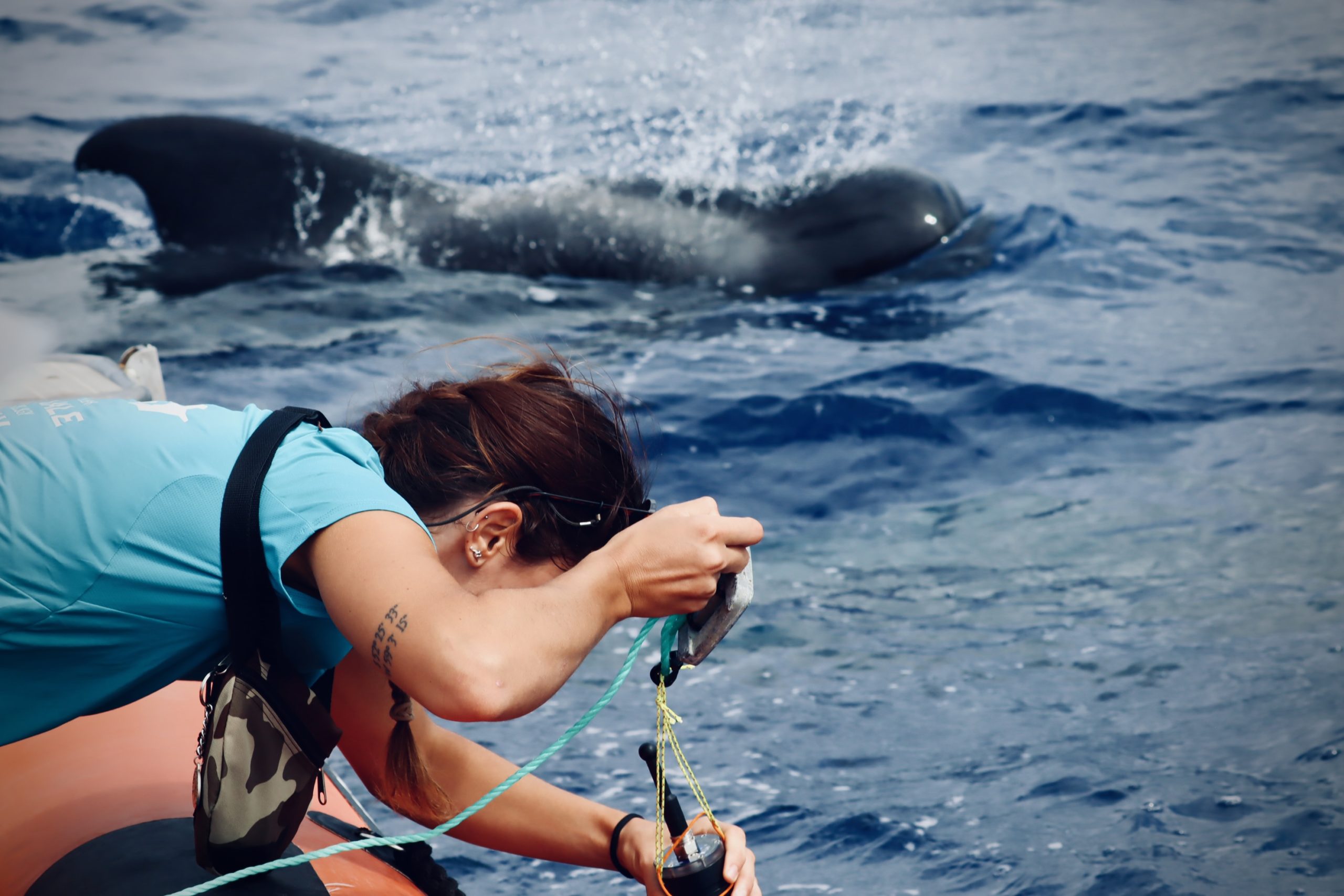Marine megafauna & open ocean

Did you know? If we could bring whale populations back to their pre-whaling days, the International Monetary Fund estimates it would be equal to restoring four Amazon rainforests. Annually capturing 1.7 Gigatons of CO2, fully-restored whale populations would offset 5% of all human-derived annual CO2 emissions every year.
Did you know? Zooplankton perform the greatest daily migration on the planet and are a critical component of the ocean’s biological carbon pump. Each night, zooplankton travel to the surface of the ocean from the twilight zone (200-1,000m down) to feed on phytoplankton, and then sink back down by dawn, taking carbon from the surface into the deep sea.
Did you know? If all the phytoplankton cells in the world’s oceans were packed together, they could form a plank 30 cm wide and 7 cm thick, spanning the distance between the Earth and the Moon? This plank would be built in one day and consumed by zooplankton in the same day.



Marine megafauna (e.g., mammals, large fishes, reptiles) and smaller lifeforms (including zooplankton and phytoplankton) play a pivotal role in the ocean’s functioning. However, many of these species are threatened due to their exposure to varying levels of human-induced pressures, which can include overfishing, pollution, marine traffic, and climate change.
Here at MARE-Madeira, having the deep sea on our doorstep means we have a living laboratory for marine megafauna and open ocean research. We are able to study unique and vulnerable marine megafauna species (like sperm whales, monk seals and sea turtles) and the vital role that plankton plays in the oceanic island ecosystem. Some of our current megafauna work is determining the distribution of these organisms, using satellite tracking to identify patterns. Other work investigates our megafauna’s health in relation to toxin levels and plastic pollution. Our plankton research explores the dynamics and ecological niches of both phytoplankton and zooplankton in oceanic island ecosystems. For example, we’re investigating how these organisms and their communities change across physical oceanographic features such as eddies, waves and around an oceanic island.
All of this research is helping us to understand and respond to global changes affecting our marine ecosystems. While climate and human pressures continue to increase, we hope our research will aid conservation efforts and help preserve the essential ecosystem functions that marine life provide. Madeira’s waters are an important oasis for many megafauna and open ocean species, and we hope it will remain so for generations to come.
Leadership
Photo credits: Pilot whales by Sandra Marco; Sperm whales by Massimiliano Rosso; Zooplankton by Sonia KM Gueroun
